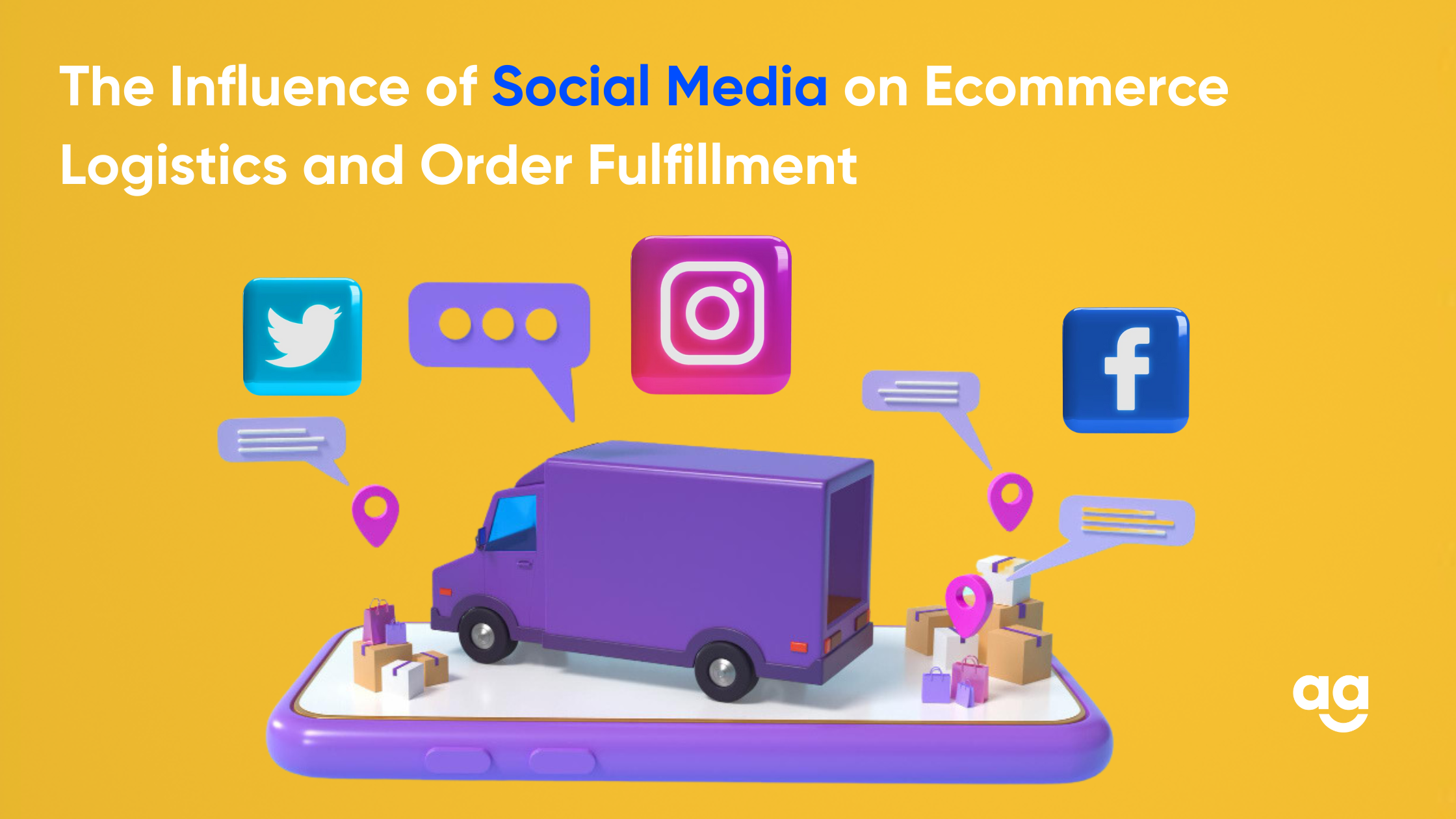Introduction
Social media has revolutionized the way we connect, communicate, and engage with others. Beyond its impact on marketing and customer engagement, social media also plays a significant role in shaping ecommerce logistics and order fulfillment processes.
In this blog, we will explore the influence of social media on ecommerce logistics and order fulfillment and discuss how businesses can leverage this powerful tool to enhance their operations.
8 Ways how Social Media can help you with Ecommerce Logistics and Order Fulfillment
1. Real-Time Customer Feedback and Expectations
Social media platforms provide customers with a powerful avenue to voice their opinions, share experiences, and provide feedback in real time.
This real-time feedback has a direct impact on ecommerce logistics and order fulfillment, as customers expect prompt responses and efficient resolutions to their concerns. Failing to meet these expectations can lead to negative reviews, damaged reputation, and ultimately, lost business.
2. Monitoring and Responding to Customer Feedback
To stay on top of customer feedback, businesses should actively monitor social media platforms and promptly respond to customer inquiries, comments, and complaints. Investing in social media management tools or assigning dedicated personnel to handle customer interactions can help streamline the process.
By promptly addressing customer concerns and providing transparent communication, businesses can build trust, improve customer satisfaction, and enhance their logistics and order fulfillment reputation.
3. Influencer Marketing and Product Demand
Influencer marketing has gained immense popularity in recent years, with social media influencers having a significant impact on consumer behavior.
When influencers promote products or endorse brands on social media platforms, it can create a surge in demand and place increased pressure on ecommerce logistics and order fulfillment processes. Sudden spikes in orders can strain inventory management, warehousing, and shipping operations if not managed effectively.
4. Collaborating with Influencers and Forecasting Demand
To leverage the influence of social media influencers, businesses must establish partnerships and collaborations that align with their brand and target audience. By proactively collaborating with influencers, businesses can forecast potential spikes in demand and adjust their logistics and order fulfillment strategies accordingly.
Accurate demand forecasting, efficient inventory management, and flexible fulfillment capabilities are essential to meet the increased demand generated by influencer marketing campaigns.
5. Social Commerce and Direct-to-Consumer (D2C) Channels
Social media platforms are increasingly integrating shopping features, enabling users to browse, discover, and purchase products directly within the platform.
This rise of social commerce and the growth of direct-to-consumer (D2C) channels have a direct impact on ecommerce logistics and order fulfillment. It introduces new sales channels, changes customer purchase behavior, and requires businesses to adapt their fulfillment processes to cater to these evolving trends.
6. Optimizing Fulfillment for Social Commerce
To optimize order fulfillment for social commerce, businesses must integrate their ecommerce platforms with social media channels. This integration allows for seamless order flow and synchronization of inventory levels.
It is also important to ensure a smooth transition from social media platforms to the ecommerce website or checkout process. Streamlining the fulfillment process and integrating backend systems can improve operational efficiency and enhance the overall customer experience.
7. User-Generated Content and Visual Order Tracking
Social media platforms are filled with user-generated content (UGC) in the form of images and videos showcasing products and unboxing experiences. This UGC has a significant impact on ecommerce logistics and order fulfillment, as it sets customer expectations and influences purchasing decisions.
Additionally, social media platforms offer visual order tracking features, allowing customers to track their orders in real time.
8. Leveraging UGC and Visual Order Tracking
Businesses can leverage UGC by encouraging customers to share their experiences, tagging the brand or using specific hashtags. This UGC can be repurposed in marketing campaigns, strengthening brand credibility and increasing customer engagement.
Furthermore, integrating visual order tracking with social media platforms enables customers to easily track their orders and share their excitement with their social networks. By capitalizing on UGC and visual order tracking, businesses can enhance transparency, build brand loyalty, and improve the post-purchase experience.
Conclusion
Social media has become a powerful tool that significantly influences ecommerce logistics and order fulfillment. By actively monitoring and responding to customer feedback, collaborating with influencers, optimizing fulfillment for social commerce, and leveraging UGC and visual order tracking, businesses can harness the influence of social media to their advantage.
Embracing social media as a key component of ecommerce logistics and order fulfillment strategies allows businesses to stay ahead of trends, meet customer expectations, and create a seamless and engaging customer experience throughout the entire purchase journey.







 Shipping
Shipping







